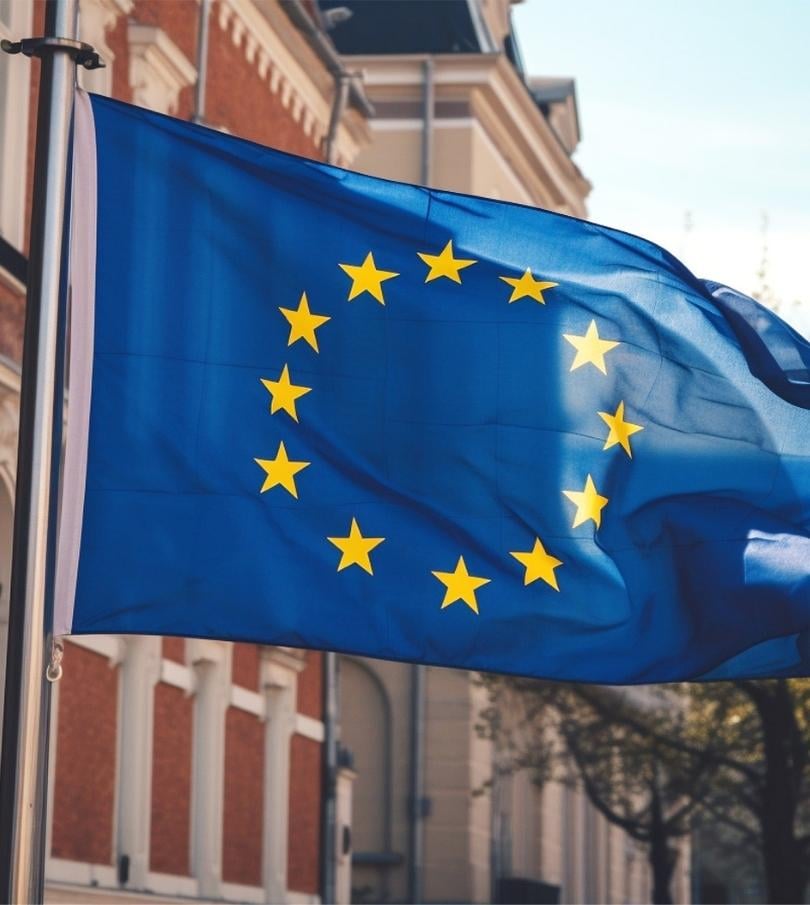
Legal Framework
The analysis focused on the following provisions of the VD:
- Article 28 – Where a taxable person acting in his own name but on behalf of another person takes part in a supply of services, he shall be deemed to have received and supplied those services. This provision creates a legal fiction: when an intermediary acts in its own name on behalf of another, it is considered the supplier.
- Article 44 – Place of supply of services to taxable persons is where the business customer is established.
- Article 203 –VAT erroneously shown on an invoice is payable by the issuer.
Furthermore, Article 9a of Implementing Regulation No 282/2011 introduces, with respect to digital services supplied electronically through a telecommunications network, an interface or a portal, such as a marketplace for applications, a presumption that such an intermediary is acting in its own name but on behalf of another person, unless that other person is explicitly indicated as the supplier. Article 28 of Directive 2006/112, therefore, applies in principle to such services. In addition, when the conditions outlined in the third subparagraph of Article 9a(1) of Implementing Regulation No 282/2011 are met, that is to say, when the intermediary authorises the charge to the customer or the delivery of the services, or sets the general terms and conditions of the supply, that presumption becomes irrebuttable.
Facts
A German company Xyrality develops game applications for mobile devices. Xyrality marketed those applications using an app store operated by an Irish company X. Final consumers could download the applications free of charge on the app store and then make additional in-app purchases. The customer received from X an order confirmation following an in-app purchase stating that the seller was Xyrality and that the gross amount included German VAT.
Questions
The referring German court asked the ECJ to clarify:
- Whether the operator of a digital distribution platform (app store) is deemed to receive and supply services on behalf of the app developer under Article 28 (i.e., a so-called ‘commissionaire fiction’ applies).
- How the place of supply of such “fictitious” services should be determined.
- Whether the developer is liable for VAT under Article 203.
Decision
ECJ confirms Article 28 applies to marketplaces that can be “undisclosed agents” even before 2015
The ECJ confirmed that Article 28 applies to supplies of digital services (apps and related content) via a marketplace. In this context:
- The app store is deemed to be the supplier to the end user.
- The developer is treated as supplying the services to the app store, not directly to the final customer.
- The fact that the order confirmation specified Xyrality as the supplier and the German VAT rate applicable did not alter this conclusion.
- Article 9a of the implementing regulation 282/2011 is not applicable in this case, as it came into force in 2015. Its content, however, in so far as that provision explains and clarifies a concept appearing in the VAT Directive, should nonetheless be taken into account. In any event, it cannot be inferred from the fact that Article 9a was not yet applicable before 2015 that Article 28 should be interpreted differently from that which is apparent from Article 9a.
Place of Supply – Article 44 Interpretation
The ECJ stated that the place of supply of the developer’s “fictitious” supply to the app store (under Article 28) must be determined under Article 44 — that is, the place where the business customer (the platform) is established.
Article 203 – VAT Liability and Invoicing
The ECJ also addressed Article 203, which provides that VAT stated on an invoice becomes payable by the issuer. The ECJ states that if a taxable person (like the developer) designates the platform as the supplier (with mutual consent), and the platform issues receipts or confirmations to private individuals showing VAT charged to the end user, the developer is not liable for that VAT. The ECJ stipulates that an order confirmation or another document issued to a non-taxable person should be considered invoices for the purpose of applying Article 203 of Directive 2006/112 only in situations where EU law provides for the obligation to issue an invoice, that is to say, when there is at least a potential right to deduct input VAT. Art. 203 VD applies when VAT has been erroneously shown on an invoice and there is a risk of losing tax revenue, because the recipient can deduct VAT from such an invoice. This provision should be interpreted strictly. It does not apply to consumer services (because these end consumers have no right to deduct).
Summary
- Article 28 applies to pre-2015 electronic services via platforms, treating the platform as the supplier to end users even if a customer understands that an agency mandate exists and knows the principal’s identity. That knowledge alone does not stop the undisclosed agency model of Article 28 from applying. The fact that the order confirmation specifies the principal as the supplier and the VAT rate of the principal’s country applicable did not alter the conclusion that the platform acts as a deemed supplier to the final customer.
- Article 44 governs the place of supply of the developer’s fictitious supply to the platform.
- Article 203 does not impose VAT liability on the developer where the platform, with consent, is designated as a supplier and issues receipts indicating VAT.
Practical Implications for Taxable Persons and Platforms
The ECJ in XYRALITY clarifies how VAT should apply for supplies made via various digital marketplaces. The clarifications apply to electronic services provided via an online platform and have even wider implications. The conclusions may thus apply where other services or goods are supplied via an online platform or even to other non-digital scenarios where commissionaire fiction may apply.
The judgment underscores that determining whether a supply falls within the scope of Article 28 must be a fact-based exercise—guided above all by the specific terms of the contractual relationship between the underlying supplier, intermediary and the final customer.
The distinction between platform and underlying supplier obligations for VAT purposes is crucial. Businesses operating via digital marketplaces and platforms should ensure they have clear agreements and understand when they are treated as (deemed) suppliers — both for VAT registration and liability purposes.
Would you like more information? Contact one of our specialists. We are happy to help you out.












